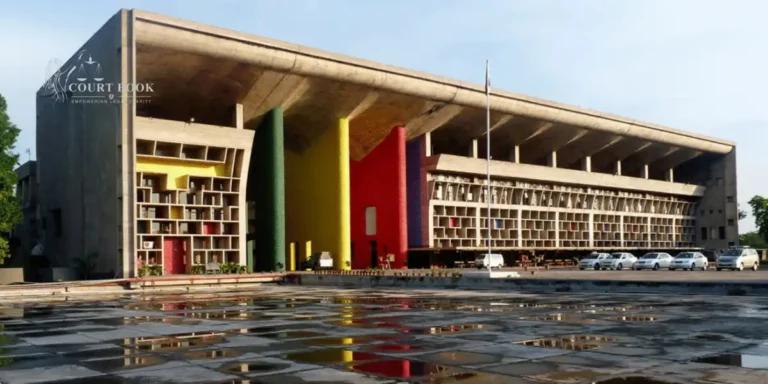The Punjab & Haryana High Court has raised serious concerns over the rising trend of real estate frauds, warning that unchecked deceitful manipulation in the sector could potentially trigger recession-like situations. Emphasizing the need for a "robust and pragmatic approach," the Court noted that such economic offences are increasingly prevalent and demand strict judicial scrutiny.
The bench, led by Justice Harpreet Singh Brar, was hearing a petition filed by Suparna Bhalla. The plea sought the quashing of an FIR registered under Section 420 of the Indian Penal Code (IPC), alleging cheating in connection with the WTC Chandigarh real estate project.
The Serious Fraud Investigation Office (SFIO) had earlier submitted a report highlighting grave financial irregularities. It stated that the promoters of WTC Noida Development Company Private Limited had collected around ₹423 crore from 1162 clients for a commercial project in Mohali, but ₹77 crore was allegedly siphoned off instead of being utilized for construction purposes.
"In the present case, an ECIR has already been registered by Directorate of Enforcement alleging money laundering on part of the accused, including the petitioner, as well as diversion of funds to foreign countries," observed Justice Brar.
"Allowing such activities to continue unchecked would be detriment to larger interest of the society and contribute towards creating serious repercussions contributing to recession-like circumstances."
The Court emphasized the need for a thorough and objective investigation into such sophisticated financial frauds, which often involve multiple jurisdictions and complex financial mechanisms.
"Of late, economic offences have become increasingly prevalent, attracting public attention, with many high profile cases coming to the fore," Justice Brar said.
"Therefore, a robust and pragmatic approach is warranted to combat this rising trend of deceitful manipulation, particularly involving real estate."
Highlighting the complexity of these crimes, the Court said that perpetrators often hide behind the corporate veil, employing illegal practices such as money laundering and tax evasion to escape liability.
"These offences, more often than not, involve complex mechanisms and pertain to multiple jurisdictions, which falls beyond the scope of traditional investigating tools," the Court stated.
"Courts are under an obligation to take a sophisticated approach, illustrating even higher standards of care, so as to ensure that the perpetrators do not take advantage of technical loopholes in the legal framework."
The petitioner, Suparna Bhalla, argued that she was being falsely implicated in the FIR. She claimed she had never held the position of Director or shareholder in the accused company and had no role in its daily operations. According to her, no specific allegation was levelled against her in the FIR, nor had she ever deceived any complainants.
However, the State opposed the plea, stating that the investigation was ongoing and crucial evidence, including documents and electronic devices, still needed to be recovered. It accused the petitioner of evading service of notices and attempting to obstruct the investigation.
"Thousands of investors have been defrauded; the case has impacted the lives of 1162 victims, who have lost their hard-earned life savings," the State argued.
"It would only be revealed after completion of the investigation who is the beneficiary of such serious economic fraud."
The State further argued that the petitioner’s lack of formal role in the company does not automatically exonerate her from the case, especially since her involvement might surface during the course of investigation.
After carefully hearing both sides, the Court concluded that this was not a case of mere corporate liability. Instead, it involved a serious economic fraud committed in a pre-planned manner with an intent to cheat and deceive a large number of innocent investors.
"Due to its unique characteristics and wider ramifications, economic offences form a special and separate category within the realm of criminal jurisprudence and stand on a different pedestal than other conventional criminal offences," the Court noted.
The bench further emphasized the broader impact of such crimes:
"Such offences have significant cascading effects not only on the lives of the victims, but also on the economic stability of the State."
The Court referred to the Supreme Court’s decision in Y.S. Jagan Mohan Reddy vs. Central Bureau of Investigation (2013), where the apex court acknowledged the large-scale effects of economic crimes and the importance of a stringent legal approach.
In the present case, the High Court pointed out that wrongful loss worth hundreds of crores had been caused to 1162 investors who had entrusted their life savings to the company, hoping for returns from a legitimate project.
"The petitioner might not have been an office-bearer or a shareholder, however, that does not mechanically make her irrelevant to the present case," the Court stated.
Dismissing the plea for quashing the FIR, the Court concluded that any interference at this stage would be premature and unwarranted, especially when the investigation is still underway.
"The role of the petitioner, if any, will be determined post-conclusion of the investigation," it held.
"Moreover, it is probable that intervention at this juncture enhances the misery of the victims of this fraud and pulls them further away from justice."
As a result, the petition was dismissed, reaffirming the Court’s commitment to ensuring accountability in complex real estate scams and protecting public interest from financial exploitation.
Case Title: Suparna Bhalla v. State of Punjab and others
Counsel for Petitioner: Mr. Puneet Bali, Sr. Advocate with Mr. P.S. Ahluwalia, Advocate, Mr. Vipul Joshi, Advocate, Mr. Sowjhanya Satija, Advocate, Mr. Aakash Sharma, Advocate and Mr. Piyush Kumar, Advocate
Counsel for State: Mr. Subhash Godara, Addl. A.G., Punjab.
Counsel for Respondent 2 and 3: Mr. Satya Prakash Yadav, Advocate














